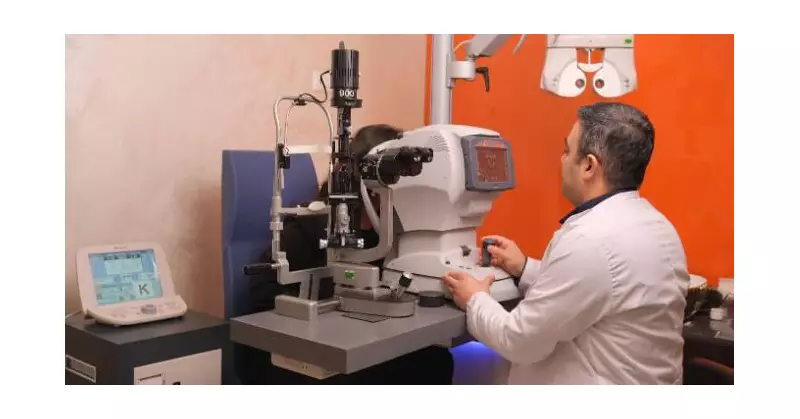
For millions of Australians who rely on glasses or contact lenses, daily frustrations like fogged-up lenses and misplaced frames are all too familiar. Meanwhile, others face the gradual clouding of cataracts that dims their world. But what if you could permanently escape these vision limitations?
Turkey Emerges as Global Vision Correction Hub
In 2025, Turkey has firmly established itself as the world's premier destination for advanced ophthalmology. Turkish cities like Istanbul now attract international patients seeking cutting-edge eye surgery technology that often surpasses what's available in Australia, the US, and UK. The combination of highly experienced surgeons performing tens of thousands of procedures annually and significantly lower costs makes Turkey an increasingly popular choice for Australians.
The challenge lies in navigating the overwhelming number of clinics, each claiming to be the best with impressive accreditations. This guide cuts through the marketing hype to identify Turkey's genuine vision correction leaders.
Understanding Your Vision Correction Options
Before exploring clinics, it's crucial to understand the available procedures. Laser eye surgery isn't a one-size-fits-all solution.
LASIK remains the most recognized procedure, where a femtosecond laser creates a corneal flap and an excimer laser reshapes underlying tissue. Patients typically achieve 20/20 vision within 24 hours.
SMILE represents the next generation of vision correction. This flapless technique uses a single laser to create a lenticule inside the cornea, removed through a tiny incision. It's less invasive with faster recovery times.
PRK and LASEK are no-flap alternatives where the cornea's outer layer is removed before laser reshaping. While recovery involves several days of discomfort, these methods suit patients with thinner corneas or active lifestyles.
For cataract treatment, the procedure involves replacing the clouded natural lens with an intraocular lens (IOL). Monofocal IOLs provide clear distance vision but require reading glasses, while premium multifocal or trifocal IOLs can restore vision at all distances, eliminating the need for reading glasses entirely.
Turkey's Top 10 Eye Clinics for 2025
1. Asli Tarcan Global leads Turkey's eye care sector with advanced laser technologies and extensive experience in both LASIK and cataract procedures. Their personalized approach and use of trifocal smart lens technology ensure rapid, comfortable recoveries, making them a top international choice.
2. Veni Vidi Göz brings over 30 years of experience to Turkish ophthalmology. While less focused on international marketing, their reputation within Turkey is impeccable, with seasoned surgeons skilled in complex procedures using premium multifocal lenses.
3. BATI GÖZ operates high-tech hospitals in Istanbul and Izmir, holding JCI accreditation and investing in latest-generation laser platforms like the Schwind Amaris. Their comprehensive international patient services ensure a seamless experience from arrival to final check-up.
4. Prof. Dr. Afsun Şahin offers a personalized alternative to larger clinics. As an academic and respected surgeon specializing in complex corneal surgery, patients receive direct care from the professor herself throughout their treatment journey.
5. Istanbul Surgery Hospital Eye Department provides the rigorous standards of a full-service JCI-accredited hospital. Their ophthalmology department benefits from strict hospital-wide quality controls, particularly advantageous for older patients with additional health considerations.
6. Dr. Sinan Göker stands as a pioneer of Turkish laser eye surgery, performing procedures since the 1990s. His private Istanbul clinic attracts patients seeking treatment from one of the industry's founding experts.
7. Kudret Göz Group maintains modern hospitals across multiple cities, combining massive surgical experience with advanced diagnostic systems to match each patient with their ideal procedure.
8. Dr. Mahmut Kaşkaloğlu founded this respected specialty eye center in beautiful Izmir, offering world-class care outside Istanbul's hustle. The family-run institution prioritizes ethical, patient-first treatment.
9. Ethica Hospital Eye Department, part of the Estethica healthcare group, excels in international patient experience with seamless service and no language barriers, equipped with Zeiss and Alcon technology.
10. Acıbadem Hospitals Group Ophthalmology represents Turkey's healthcare excellence with JCI-accredited, university-affiliated hospitals. Their surgeon-professors work at medicine's cutting edge, ideal for complex cases or revisions.
Essential Information for Australian Patients
Cost considerations for 2025 show high-quality LASIK or SMILE procedures ranging between $1,500 and $3,500 USD for both eyes, typically including consultation, surgery, and post-operative medications. Premium cataract surgery with trifocal/multifocal lenses costs $2,000 to $5,000 USD per eye, while standard monofocal lenses are more affordable.
Safety remains paramount when considering medical tourism. Clinics featured here maintain JCI accreditation and use FDA/CE-approved technology, with safety and success rates matching or exceeding Western standards. Australians should avoid suspiciously low-priced options advertising procedures like LASIK for $500.
Recovery timelines vary by procedure. LASIK and SMILE patients typically resume normal activities with clear vision within 24-48 hours, while PRK/LASEK requires 4-7 days of discomfort. Cataract surgery provides clearer vision the next day, though full stabilization may take several weeks.
Ideal LASIK candidates are over 18 (preferably 21) with stable prescriptions for at least one year and no other eye diseases. Corneal thickness, measured during free consultations, determines final eligibility.
This information serves as general guidance only. Australians considering vision correction abroad should consult their GP and verify any medical professional's credentials and regulatory standing. Carefully consider all potential risks, including those related to travel, aftercare, and specific procedures.





